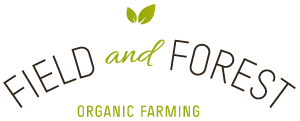
Research on plant tissue culture application for commercial propagation of endangered medicinal plants No.1.1.1.1/19/A/083
Along
with the increase in demand for medicinal plants for the
pharmaceutical, cosmetics and food industries, the wild populations of
many wild medicinal plant species are decreasing. Researchers of the
Institute for Environmental Solutions have identified the latest market
needs by selecting three endangered medical plant species (Siberian
ginseng (Eleutherococcus senticosus Maxim), common yew (Taxus baccata L), sea holly (Eryngium maritimum
L)) and their vulnerabilities for commercial cultivation: prolonged
seed germination, low seed production, slow rooting of cuttings (yew).
It highlights that the cultivation of these species requires more
efficient and more economically viable methods for propagating larger
quantities of the plants for commercial use.
Objective
To
adapt and develop micropropagation technologies including in vitro
propagation in plant tissue culture transfer and acclimatization to ex
vitro of the endangered medicinal plants – Siberian ginseng
(Eleutherococcus senticosus Maxim.), common yew (Taxus baccata L.) and
sea holly (Eryngium maritimum L.).
Activities
- Expeditions for collecting samples of wild plant species (in the margin of distribution and its main distribution area) to assess differences in chemical composition and propagation potential by plant tissue culture or genotypes from different origins.
- Adaptation of the methodology for propagation of Siberian ginseng (Eleutherococcus senticosus maxim.), common yew (Taxus baccata L.) and sea holly (Eryngium maritimum L.) by plant tissue culture, including initiation of the plant tissue culture, multiplication and plantlet rooting in vitro.
- Adaptation of the methodology for the cultivation of in vitro propagated mericlones in ex vitro and field conditions.
- Acquired knowledge on the three endangered medicinal plant species (sea holly, common yew and Siberian ginseng) including chemical composition of local rare wild medicinal and aromatic plant resources, micro-propagation potential and plantlet adaptation techniques in field conditions. Data regarding chemical changes in plants obtained during the project will provide new insights into the influence of geographical, environmental, and agricultural factors on the composition of biologically active substances in evaluated plants. The resulting data, which will not affect the intellectual property rights of the enterprise, will be published in a scientific article.
- Developed one technology prototype (sea holly) for initiation of the plant tissue culture, in-vitro plantlet propagation, as well as plantlet adaptation ex-vitro.
Duration: 1st of July 2020 – 31st of June 2023
Leading partner: Institute for Environmental Solutions
Partner: SIA “Field and Forest”
Project scientific manager: IES leading researcher Dr. Ieva Mežaka, [email protected]
Funded by: European
Regional Development Fund, as a part of 1.1.1 “Improve research and
innovation capacity and the ability of Latvian research institutions to
attract external funding, by investing in human capital and
infrastructure” 1.1.1.1. measure “Support for applied research”, Nr.
1.1.1.1/19/A/083 and project partners.
Total budget: 747 226 EUR, including public financing
